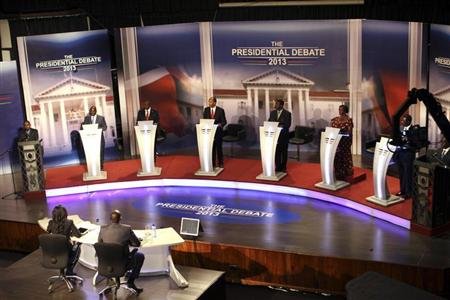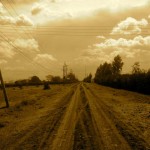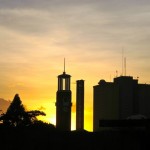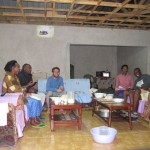Last night Kenya had its second presidential debate. Not just of this election, but of its history. I spent most of today in Nairobi, talking to people and making a contact with the national newspaper The Standard. It’s looking like this Friday I’ll be shadowing the journalist who snagged the front page in today’s paper, which will give me an inside view of both the media, plus whatever surprises come along for the ride.
Last month Raila Odinga had a 5% lead over the other front runner, Uhuru Kenyatta. The latest polls show them in a dead head.
Kenya has never had an election without violence. Last time around violence affected over 600,000 people and took over 1,500 people’s lives. From President Obama, to British diplomats, everyone in the international community is putting pressure on Kenyans to conduct elections without violence and to resolve disputes in courts.
People are hopeful, most people I talked to in the streets of Nairobi have told me that they don’t think they’re will be violence. However, most of those same people are stock piling food, since during the Post Election violence of 2007 the country was virtually shut down for business and the price of food doubled in a matter of days.
People seem divided along friend and family lines. In one guitar workshop I walked into everyone there was a staunch supporter of Uhuru Kenyatta. A few blocks away in a cafe everyone present supported Raila Odinga.
One of those two men will be president. The international community, while staying as unbiased as protocol demands, has all but stated its support for Raila Odinga. His opponent, Uhuru Kenyatta, whether he is elected or not, is summoned to appear at the Hague for crimes against humanity this April.
Kenya’s new constitution which went into place in 2010, will be fully implemented under the next president’s term. On paper, it changes Kenya dramatically for the good. But as history has taught, paper goes only as far as those in power allow it. There’s tension in Kenya, uncertainty, but also hope, people seem to agree that the days of unchecked central power and impunity might be reaching their twilight.






